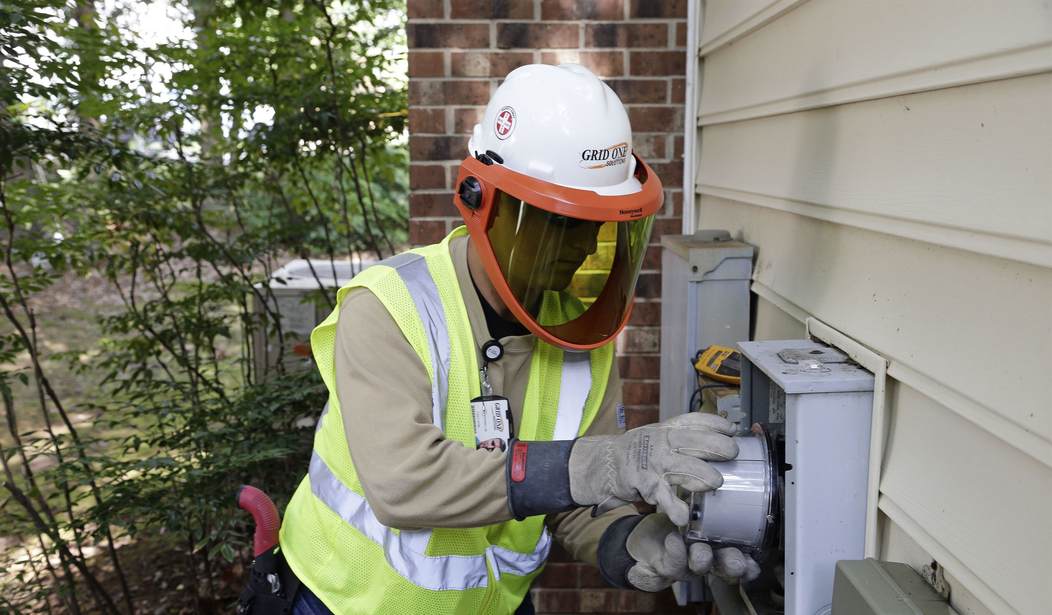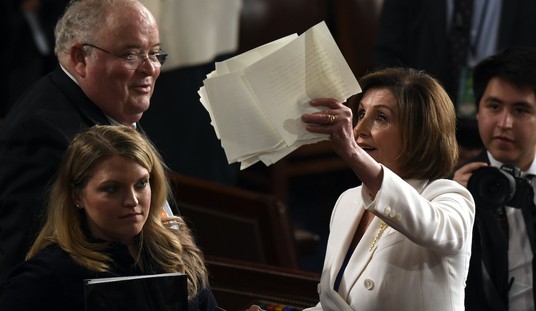The Department of Energy, which I've long advocated for getting rid of as unnecessary and unconstitutional, has something called the Office of Energy Efficiency and Renewable Energy (EERE). This office claims its operations are based on three "pillars" - the "Buildings and Industry Pillar," the "Renewable Energy Pillar," and the "Sustainable Transportation and Fuel Pillar." Note that these three pillars are all aimed at one thing: Reducing emissions to address the climate change bugaboo.
Now, efficiency is best handled by markets, not government; indeed, the Department of Government Efficiency (DOGE) aside, the words "government" and "efficiency" are effectively antonyms, or as near as makes no difference.
But since we're talking about trying to make the federal government more efficient, shouldn't the DOGE look at shutting down, if not the Department of Energy altogether, then at least, this unnecessary and unconstitutional office? There's a good argument to be made for it; one thing, for example, is the EERE's federally funded building codes, which add to the cost of every structure put up in the United States. At Master Resource, an energy/climate blog, authors Mark Krebs and Tom Tanton have some good arguments for at least doing that much.
Welcome to the byzantine world of building energy codes. There are two basic types of building energy codes. The first type is that of codes that can be adopted by state and local authorities that prescribe how residential or commercial buildings should be constructed to reduce energy consumption (or redirect to that bureaucratically deemed “clean”) and thus qualify for getting a building permit (alongside more traditional building safety codes). The second type of building codes are performance oriented. These set operating budgets for building energy consumption and/or carbon emissions.
Byzantine doesn't quite cover it, in my (admittedly limited) experience. I remember having our old house in Colorado re-roofed and re-sided, and part of our consideration as to materials in both counts was that certain materials had some kind of energy-efficiency rating, and that did influence our choices; for one thing, it made the house cheaper to heat in winter and cool in summer, and that's what should drive these decisions: The people's wallets, not their governments. The materials worked, by the way. My wife, who keeps a gimlet eye focused on our finances, was happy about the effect on our utility bill.
Back to the EERE and the sources of the Net Zero building energy codes. Check out the money trail:
BECS are officially referred to as “voluntary,” and supposedly developed by “consensus,” for state and local governments to implement building energy efficiency requirements. The International Code Council (ICC), through its numerous committees, publishes these codes and generates revenues by selling them to whoever needs them (e.g., code officials, builders, trades, etc.). ICC energy codes are organized and managed under a separate division of the ICC called the International Energy Conservation Code (IECC).
Jurisdictions seeking to adopt IECC building energy codes can simply adopt the latest version once certified by DOE that they “save energy” under statute and are administrated under DOE’s EERE through their Building Energy Codes Program.” Once published by the ICC, these codes are ready for adoption into state and local building authorities and purchased by whomever. Publication sales represent a major source of ICC’s revenue. State and local code authorities may elect to adopt earlier IECC versions of the IECC codes or take an ala cart approach, picking and choosing an extensive selection of sections and options as they deem appropriate.
So, the Department of Energy, through the EERE, is pushing the sale of ICC and IECC code publications. Indirectly, maybe, but even so.
Does that not seem like a major conflict of interest? And done in the name of appeasing climate scolds? From my days as a corporate consultant, I have (in all modesty) extensive experience with ISO standards, as well as an international set of standards; I've worked with ISO 9001, ISO 13485, ISO 14971, and a bunch of others. Those publications, if you buy the official ones, are expensive - and delivered to you as a PDF file, a simple duplicate. Granted a fair amount of money went into developing and writing those standards, but it still smells a lot like a racket to me.
See Related: Targets for the DOGE: Do We Need the Department of Energy?
The Right Choice: Why Chris Wright Is the Man for Energy Secretary
But wait! There's more! Here's the onion:
“Consensus” building energy codes have been largely and silently commandeered by EERE which has accelerated under the Biden administration. “Consensus” comes through “packing the bleachers” of committees with loyalists to further the Net-Zero concept. Tactics include “improving” building energy efficiency codes through “public/private partnerships.” However, the true cause of Net-Zero policies is to advance electrified “energy efficiency” via “clean” (a.k.a. renewable) energy so that consumers can be more readily controlled.
Control. It's always about control. From "smart meters" to peak-load pricing, it's all about control - controlling us, controlling our behavior, controlling what we can build and where we can build it. These aren't building codes like, say, banning cedar-shake roofs in areas that get a lot of dry lightning storms. That was the case in the area of Colorado we lived in; we knew several people who had lightning strikes set their shake roofs on fire, so that regulation, put in place locally, at least made a little sense. But "Energy Efficiency" standards don't.
As I said, the DOGE needs to look into shutting down the EERE. There's no good argument for keeping it. Efficiency decisions are best handled by people's economic decisions, for the simple reason that efficiency is cheaper than inefficiency. Markets, as I'm continually pointing out, are sometimes messy but they usually get things right in the end. And, of course, let us not forget the constitutional argument; the federal government, neither the executive or legislative branches, have no enumerated power to do any of these things: Therefore, under the 10th Amendment, they can't.
Come on, DOGE. Get that axe swinging. Here's another target.














